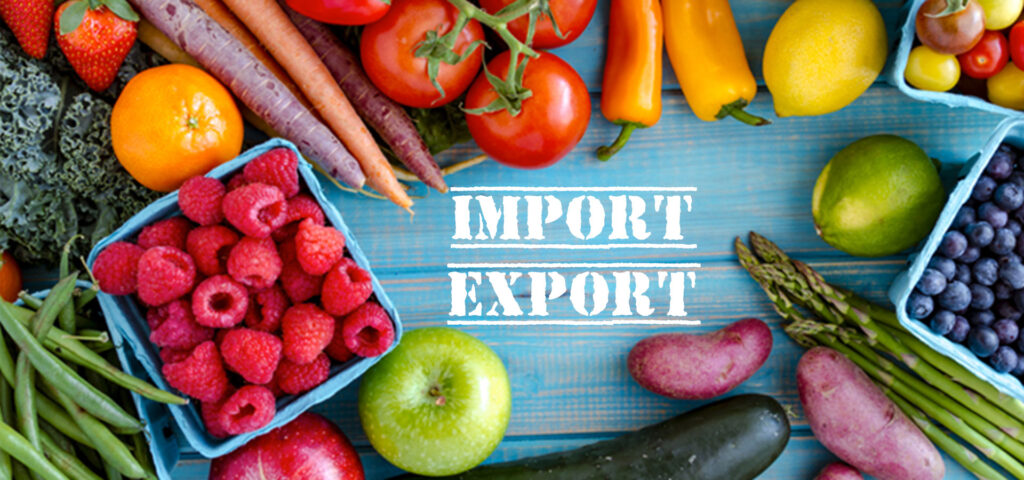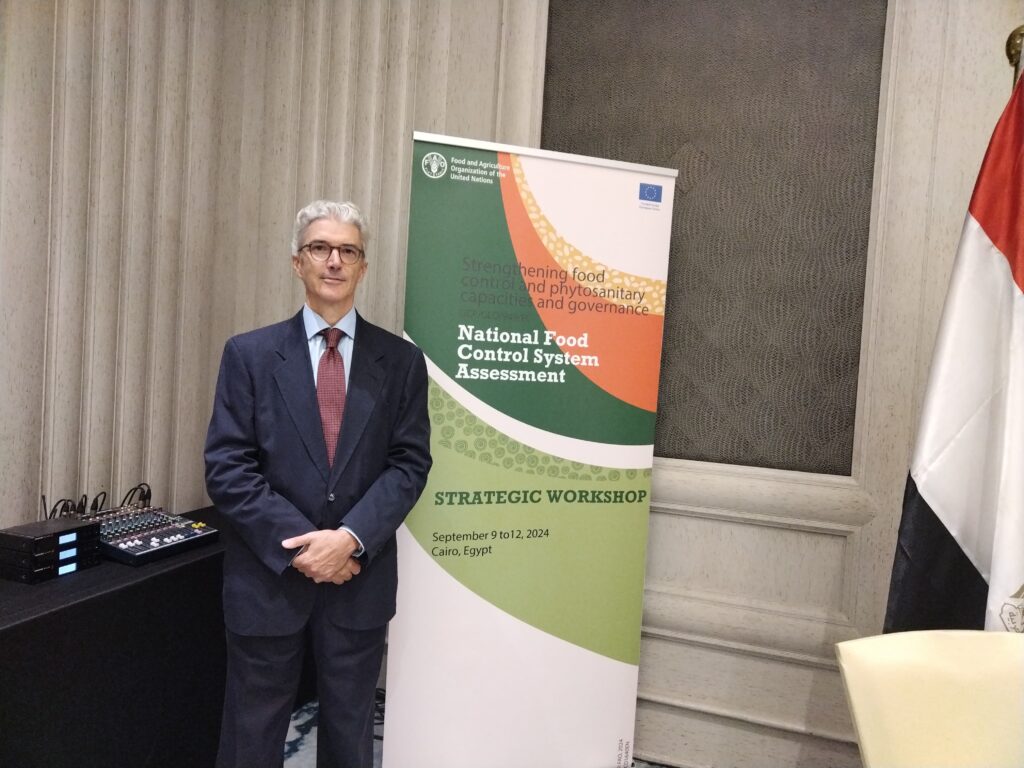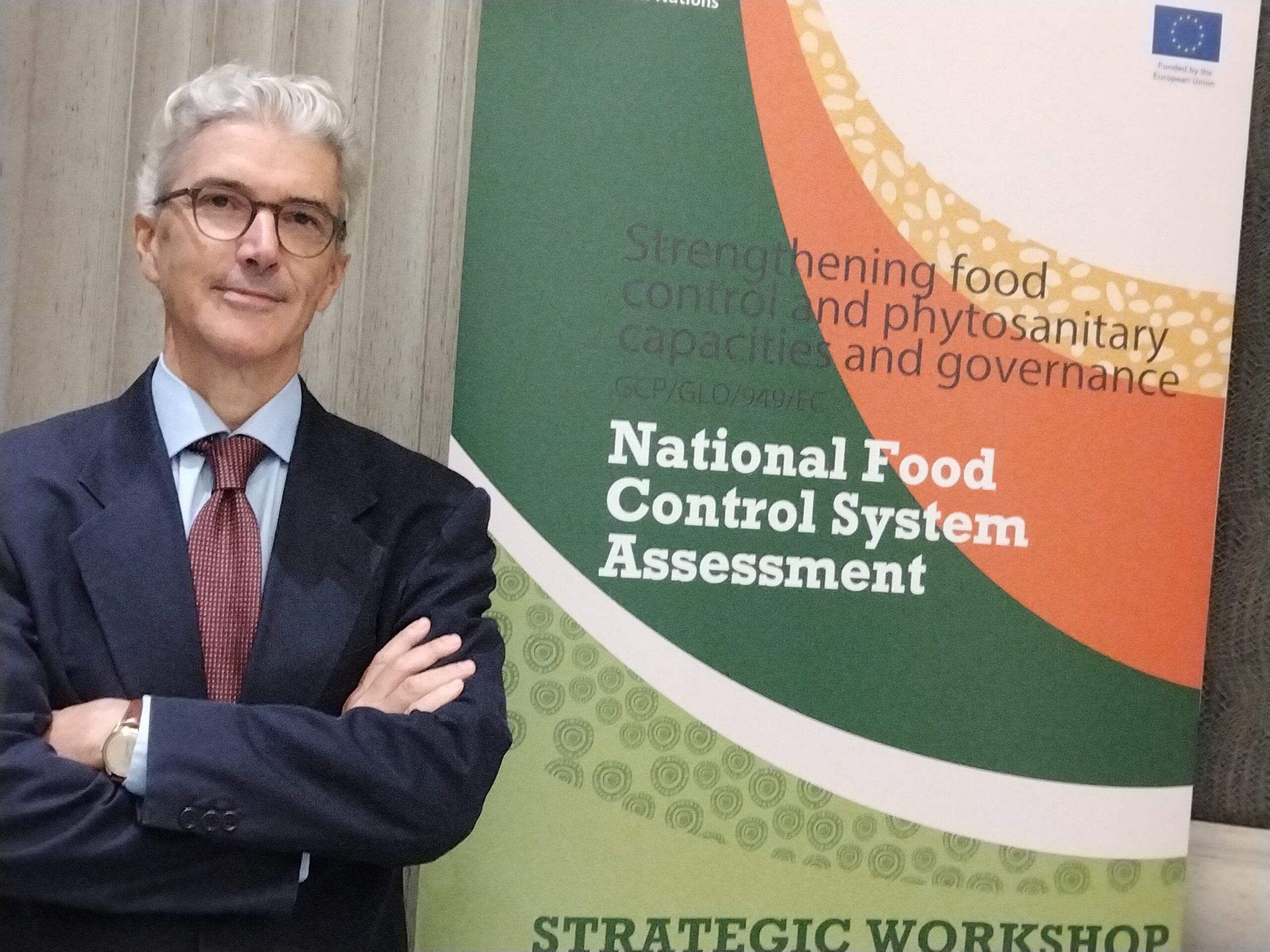Food & Climate
European food imports will not be affected by carbon tax, but fertilizers may have some effects indirectly in internal market, a European official told “Food & Climate” platform.
“The carbon tax has nothing to do with agriculture or food, because food itself is not included. But fertilizers are included, and its effects will be indirect”, Nikolaos Zaimis, Minister counsellor, and head of trade section in European embassy in Egypt, said.
What is carbon tax?
The EU’s Carbon Border Adjustment Mechanism (CBAM) is the EU’s tool to put a fair price on the carbon emitted during the production of carbon intensive goods that are entering the EU, and to encourage cleaner industrial production in non-EU countries, according to European commission website.
By confirming that a price has been paid for the embedded carbon emissions generated in the production of certain goods imported into the EU, the CBAM will ensure the carbon price of imports is equivalent to the carbon price of domestic production, and that the EU’s climate objectives are not undermined. The CBAM is designed to be compatible with WTO-rules.
CBAM will apply in its definitive regime from 2026, while the current transitional phase lasts between 2023 and 2025. This gradual introduction of the CBAM is aligned with the phase-out of the allocation of free allowances under the EU Emissions Trading System (ETS) to support the decarbonisation of EU industry.
What about European food imports from Egypt?
“Food & Climate” platform met Nikolaos Zaimis during the closing workshop, which was held recently in Cairo, to assess the food control system in Egypt, within the framework of the “Strengthening food control phytosanitary capacities and Governance” program, which is a project funded by the European Union to provide technical support and work with the competent authorities in 12 member states of the African Union, in coordination with the Food and Agriculture Organization of the United Nations (FAO).

So, Zaimis emphasized that carbon tax will not affect European food imports from Egypt at all, “as very as simple”.
The carbon tax covers fertilizers, cement, electricity, and steel, but fresh or processed food will not be affected, he explained.
Zaimis responded to a question that fertilizers are linked to food production, which means that the tax may have an impact, saying: “Carbon tax is related to internal region, like the EU needs fertilizer to produce food but when you export this food, it does not matter”.
Food & Climate” platform asked Nikolaos Zaimis: Do you think that Europe can avoid the effects of the carbon tax on fertilizers imports?
He replied: “that People see the piece not the big picture. We have a lot of changes last two years to make all agriculture sustainable, so, we now look at agriculture as not only piece of meal”.
We do not look at farming or harvest separately of manufacturing food or processing food, food retailing or consumer taste. We try to look all in one big cycle which will be sustainable and it is part from green revolution or green deal as we say in Europe, he added.
He said: “Carbon tax is for decarbonisation and all of these parts from green deal. We have very ambitious targets in this”.
We change our economy to be green economy or sustainable economy, and that includes also agriculture and food safety.
But this has very high costs, and we have seen many farmers protest against this cost, how Europe deal with this?
He answered: Every change has high cost. For example, Europe promotes the organic agriculture, and we are planning to convene farmers to use less fertilizer, less pesticides, and Less Chemicals. This is a change.
We do not look to the cost in next months, but long of period, if our agriculture becomes sustainable, if it makes it healthier for the consumer, then the result is good.
“You know every change has a cost, like decreeing carbon discoid, using no sugar” he added.
What about Egypt?
Egypt has been very interested in green agriculture and it has a plan to become a hup fore green energy like hydrogen and we support it also in this area. And we very hop to work close to Egypt.
We even talk about cables under Mediterranean with Greece. So, there is a very big change.
That why we in Egypt. Egypt is one of our favorite partners.
We developed our strategy this year, and this means that we have a framework to discuss everything and help all these changes.
Climate change is big element but not only one. We have also biodiversity loss, land degradation, scarcity, wastes (how much food is wasted), and we do not have recycling.
There is number of elements that has risks, that we need address one by one and all together in time, and this is why the food sustainability is important.
We will not resolve climate change only in agriculture. All countries face climate change. For example, in Alex (Egypt) faces higher sea level.
“I want to say that we cannot do anything alone but need partners like Egypt”, he added.
Nikolaos Zaimis said that the cost of the program which Europe pay for Egypt is about 3.6 euro. “But it is not important, i think we should to talk about the value of the program”.
The value of the program is in two results: “it is actually the program of food safety is important and addresses also an important sector in the European Egyptian relationship”.
The Egyptian food exports is one of the most successful stories.
I have been here two years and see that these exports have increased almost double. It includes fresh food and processing food. Last year was a difficult year for Egypt, but this sector managed to do well

It is very important also because food safety and plant health are very important to Europe because we have the high standard food, “I think we have the highest measures in the world”, he added.

